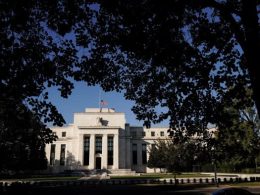Unlock the White House Watch newsletter for free
Your guide to what the 2024 US election means for Washington and the world
At an event over the summer where I knew the vast majority of the attendees to be highly socially and politically progressive, a woman pulled me aside and told me she needed to talk to me about something. Slightly concerned, I asked what it was regarding. “Trump,” she said. Oh God, I thought, has she been offended by one of my columns? She then uttered six words that have been ringing in my ears ever since: “The thing is, I love him.”
This woman — who considers herself staunchly on the left of the political spectrum — went on to tell me what it was about Donald Trump that she found so compelling: his “punk” (her words) outsider status, his funniness, the fact he’s unafraid to say what he really feels, his anti-war, anti-establishment stances.
It might have been the most unexpected, but it was far from the only such conversation I’ve had with people on both sides of the Atlantic — and both sides of the aisle — as the election approached. And what all of them had in common was the change in the way that Trump was being discussed. To use a neologism that has already become a cliché: there had been, since 2020, a distinct vibe shift.
It is, of course, both intellectually lazy and foolhardy to base one’s sense of the political climate solely on such experiences. But sometimes these types of encounters can give you a feeling for the general mood that no amount of polling data or rigorous political analysis can provide. And so, by way of drawing attention to the shift in tone towards Trump, I would like to offer just one more anecdote.
In March 2016, on the first morning of a two-week visit to the US, I sat down in a doughnut shop in Brooklyn and started chatting to three friendly people with thick New York accents. We talked about the election and I asked who they would be voting for. To my shock, despite the fact that none of them had a good word to say about Trump, they all told me they’d be voting either for him or not at all, because of how much they despised Hillary Clinton.
Several themes have emerged over the past few weeks amid the deluge of takes on why the Democrats lost the 2024 election. It was Joe Biden’s fault for not stepping down soon enough; it was the media’s fault for covering up his frailty; it was the Democrats’ fault for being out of touch with ordinary people; it was Kamala Harris’s fault for picking Tim Walz, not Josh Shapiro, as her running mate; it was a part of a global trend of voting out incumbents; it was the egg-flation, stupid.
I happen to think these are all good and legitimate arguments (indeed I have made many of them myself). But I don’t think they paint the whole picture, even when taken cumulatively. There seems to still be a reluctance to acknowledge a truth that — while it might be unpalatable and uncomfortable for some — it is important to face: the Democrats didn’t lose the 2024 election so much as Trump won it.
On the eve of the 2016 election, voters faced a choice between two historically unpopular candidates: Trump’s unfavourability rating was the worst in presidential polling history, according to Gallup, at 61 per cent. Clinton’s, at 52 per cent, was at that point the second-worst. In the run-up to 2020, things were only marginally less negative: Trump was viewed unfavourably by 57 per cent of voters, and Biden by 50 per cent.
This time around, only 48 per cent viewed Trump unfavourably, compared with 50 per cent for Harris. His favourability ratings, meanwhile, rose from 36 per cent when he won in 2016 to 50 per cent this time around.
When it comes to levels of enthusiasm, things have also shifted markedly: a YouGov survey two weeks before the 2024 election found 76 per cent of Republican voters would feel “enthusiastic” (rather than merely “satisfied”) if Trump were to win (66 per cent of Democrats felt the same about Harris). That compares with just 45 per cent of Republicans who felt enthusiastic about him in 2016 and 67 per cent in 2020 (in that election, a meagre 61 per cent of Democrat voters felt enthusiastic about Biden, the eventual winner).
The 2016 and 2020 elections were won because voters were motivated to keep out first Clinton and then Trump. But while the Democrats tried to win on a negative basis again, focusing much of their campaign on maligning Trump, this ended up being an ineffective strategy.
Voters didn’t enter the polling booths holding their noses; they went in with their eyes wide open. This was a positive endorsement of Trump, not a vote for the least bad option. As a distressed Democrat said to me last week: “The last time he won, nobody knew what we’d be getting. This time it’s like, ‘Wow, OK, you people actually want this.’”
Source link









